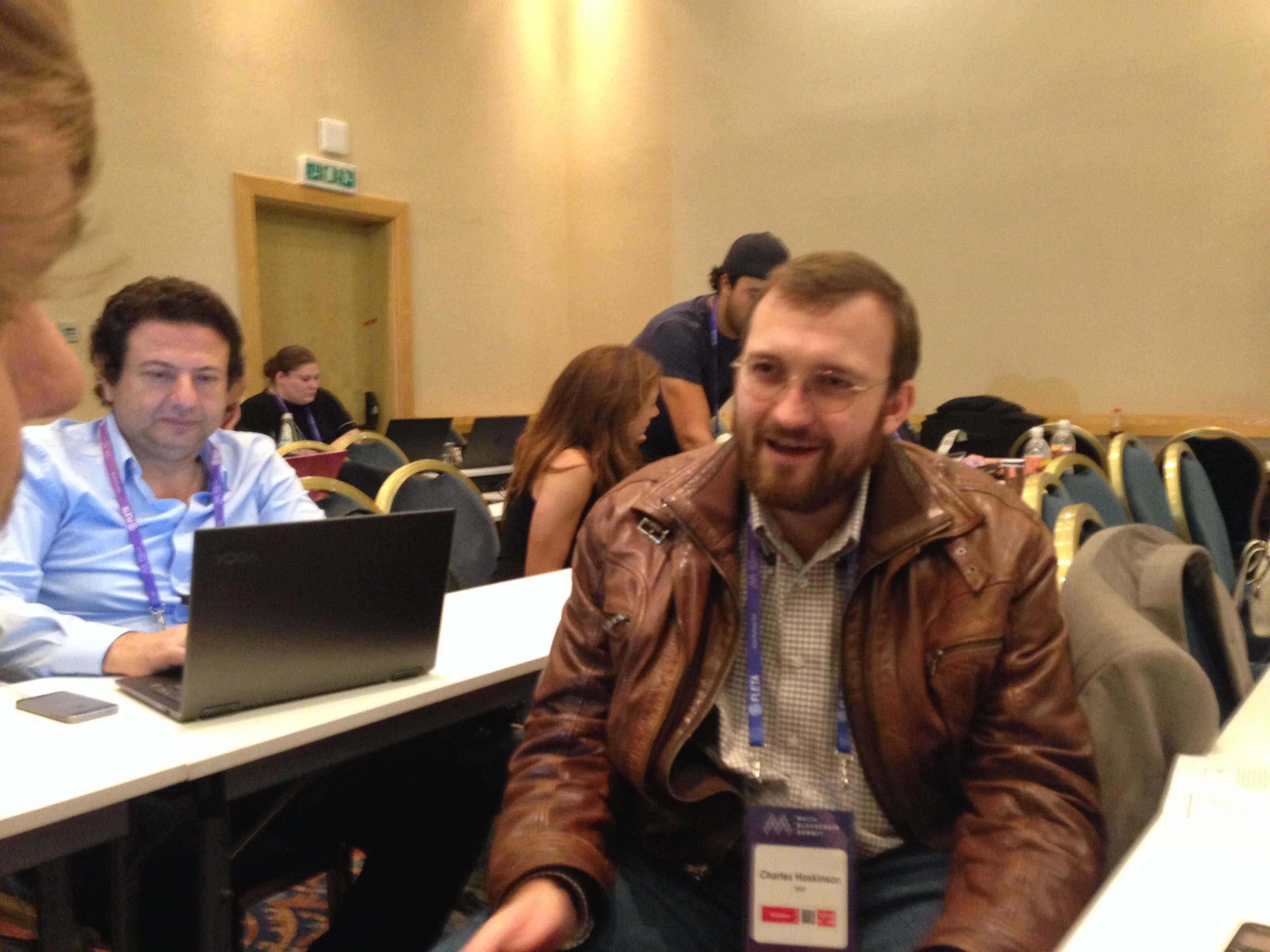

Charles Hoskinson started mining Bitcoin back in 2011, before going on to work alongside Dan Larimer in creating Bitshares and co-founding Ethereum with Vitalik Buterin.
The 31-year-old now spearheads technology and engineering company IOHK, whose aim is to use peer-to-peer innovation to provide financial services to three billion unbanked people. The company’s most notable projects include the 8th and 16th largest cryptocurrencies Cardano and Ethereum Classic, as well as open source crypto wallet Daedalus.
During a 30-minute interview at Malta Blockchain Summit, Hoskinson talked to Coin Rivet about the progression of cryptocurrency in the last decade, broadening out from just two communities in 2011 to a stage where even a camel herder in Mongolia owns cryptocurrency.
“The cryptocurrency space has grown in a series of communities; there were the cypher punks, who had been around in money since the 1980s, they were the David Chaum, Nick Szabo and Digicash guys and they were all about ‘if information can move at the speed of light then why can’t money? What is the internet going to do with money?’. Then there were was the other group, a political group, who like private money like the Ron Paul guys, and I was a Ron Paul guy.” he said.
“I worked on the Ron Paul campaign in 2007 so when I joined I was on that side of it. What we were all talking about was ‘is it possible that Bitcoin could achieve stability, reasonable market price and actually become a monetary competitor or maybe some sort of a digital commodity?’. At that stage very few people imagined that we’d reach this level of success.”
He added: “Then in 2013 the next wave came. Silicon Valley started taking it seriously, well established people came in and started to build real businesses, putting billions of dollars into the infrastructure and Bitcoin reached a one billion dollar market cap. That caused the public to say, ‘hey, this Bitcoin thing is weird, but it’s interesting’.”
Hoskinson went on to speak about the ‘smart contract revolution’ that happened soon after, elaborating on how he and Vitalik Buterin were partly responsible for the new wave in creating Ethereum, which was a catalyst for the ICO revolution that happened in 2017 and thus mainstream adoption.
“The growth is pretty crazy,” he continued. “My first meetup group was in 2011 and two people signed up including myself, and the other guy didn’t show up. That was the level of adoption. Now in 2018 I was just in Mongolia and met a camel herder, the guy had Bitcoin!”
The conversation moved on to the implementation of blockchain technology within pre-existing technologies, with Hoskinson claiming that it could be used on a daily basis within apps like Facebook Messenger and Skype, which could use a crypto component without anyone realising it.
The classification of cryptocurrency as a digital asset class or a security has been another contentious talking point in 2018. Dr Craig Wright, who has in the past claimed to be Satoshi Nakamoto, recently told Coin Rivet that all ICOs are securities regardless of whether they claim to be utility tokens or not, stating that: “If you raise capital. It is a security.”
Hoskinson lambasted Dr Wright’s approach. “Any man who tries to convince people that he is Satoshi Nakamoto for business legitimacy is no person anyone should listen to. There is real utility with Ethereum, the whole ICO revolution is a case study of utilities. There are so many businesses out there that could not exist without the Ethereum platform. To ignore that and to say it has no utility is insane.”
“These Bitcoin maximalists are basically saying if it’s not Bitcoin it’s a scam, or if you took a single dollar through an ICO you’re automatically a security and the government should destroy you regardless of what you are. It’s crazy.”
“There are all kinds of legal arguments you can make and Craig Wright is not a lawyer, he has no experience in this area and there are lot of others like Tone Vays who have followed him in that respect. Honestly, I think they need to chill out and understand the consequences of what they’re saying.”
It’s OK to break the law when they’re doing it, but there’s a problem when other people do it for the common good, he observed. “If you read the Money Transmision act, being a miner could be constituted as being a money transmitter, so is Craig a money transmitter then? If we were to regulate that way then he would say the regulations are wrong, but they want to use the government to hurt our competitors like Ethereum and have the SEC go after them. It’s just standard cronyism.”
It makes no sense to declare Ethereum as a security at this stage, he argued. If the SEC were to make that decision, businesses would still use Ethereum around the world and it would hurt a lot of retail investors.
“I do take a dim view on ICOs but Ethereum is a world apart from let’s say EOS or any of these other cryptos. There were a lot of really bad actors in the ICO space but Ethereum sure as hell wasn’t one of them,” Hoskinson concluded.
For more exclusive interviews with major cryptocurrency influencers including John McAfee and Scott Stornetta, click here.
Denver, Colorado, 24th February 2025, Chainwire
Denver, Colorado, 20th February 2025, Chainwire
Washington, D.C., 18th February 2025, Chainwire
Dubai, UAE, 27th January 2025, Chainwire
Those who enter the market at this time may be surprised to hear that Bitcoin…
George Town, Grand Cayman, 22nd November 2024, Chainwire